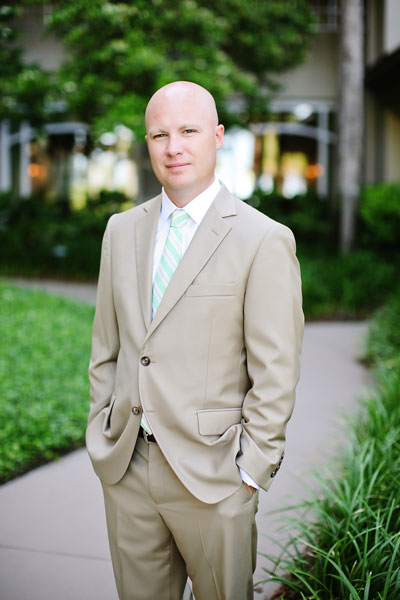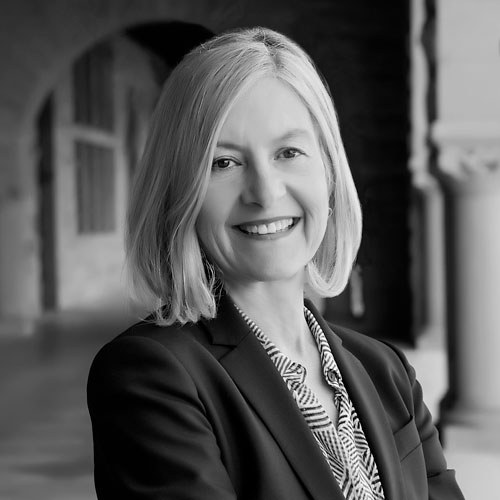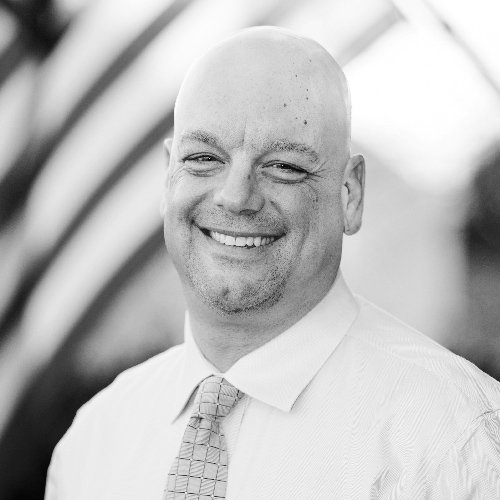What do spinal alignment, deep brain stimulation, and Marvel’s Doctor Strange have in common?
At one point or another, they have all come across Scot Elder’s desk. Elder is the VP, chief counsel of Medtronic’s Restorative Therapies Group, which is an $8 billion division of the largest medical device manufacturer in the world, which itself operates in more than 155 countries and has 260 locations and 85,000 employees. Elder is responsible for the legal department of Medtronic’s Spine and Biologics, Orthopedics, Brain Therapies, Pain Therapies, ENT, Pelvic Health, and Advanced Energy business units. Elder has even overseen the use of Medtronic’s 3-D imaging technology in big-budget Hollywood movies such as Star Trek and Doctor Strange.
“On average, I travel 120 days out of the year, globally and domestically,” Elder says. He travels extensively in order to oversee that vast range of responsibilities, covering everything from patent litigation in Texas to business-development transactions in Israel.

Elder’s dedication stems from a lifelong mission to help others. He sees a clear connection from his Mormon missionary work in Japan in the 1990s to his work with the Ronald McDonald House to his contribution to Medtronic’s life-saving devices.
“I absolutely connect the work I did as a missionary in Japan to the work I do now, assisting people whose lives are changed by our products,” Elder says. “When I look back at that experience, it’s really the same thread. It gave me a solid foundation to think first about other people. It’s the most rewarding part of my job. If you start with helping people first, it’s easy to find meaning in what you do and indicative of the vast possibilities that we, as a society, can do when we come together. It’s heartening and inspiring.”
One project Elder has been contributing to that furthers Medtronic’s mission of alleviating pain, restoring health, and extending life is the company’s partnership with Mazor Robotics. In combination with Medtronic’s imaging software, Mazor’s spinal surgery robot enhances spinal surgery results by using multiple-source data, precision guidance, and optical tracking.
But to Elder, a deal like this is business as usual. “Mazor is an important partner, and it gets people’s interest outside of the company, but we have many important and exciting transactions every year,” Elder says. “The project is really an indication of the kind of work we typically do.”
Elder might be modest about the importance of the partnership, but there’s no denying that the surgical robotics field is only growing. In fact, Mazor was behind more than sixteen thousand successful spinal surgeries as of 2016, making the deal a bright point in Medtronic’s future.
Giving Back in the courtroom
From 2006 to 2009, Scot Elder served on the board of the Ronald McDonald House of Jacksonville, Florida. His work at the nonprofit organization went to support families of children receiving medical treatment. He brought the community together for fundraising efforts such as the annual fun run.
Today, Elder’s desire to help others extends to his role on the board of directors for the Atlantic Legal Foundation, a highly respected and influential nonprofit, nonpartisan public interest law firm. The foundation was established forty years ago, and it has a history of advocating for individual rights and sound science in the courtroom. The foundation frequently files amicus curiae briefs in high-profile court cases in front of state supreme courts, federal circuit courts, and the US Supreme Court. In his capacity as a member of the board, Elder helps people in the courtroom. The foundation, for example, played a pivotal role in Daubert v. Merrell Dow Pharmaceuticals, a landmark case that definitively set the evidentiary standard for expert scientific testimony in federal court.
“I have known the chairman of the board of the foundation, Hayward D. Fisk, for almost twenty years,” Elder says. “Dan has always inspired me to find time to give back to the community in meaningful ways.”
Elder’s cutting-edge work doesn’t hurt his reputation as a father either. He recalls moments such as drafting licensing agreements to use Medtronic’s devices in movies such as Star Trek and laughs as he recounts his son’s recent reaction to seeing Medtronic’s devices in Doctor Strange. “My kids are usually like, ‘I don’t even know or care what dad does,’ but when they see it on the screen they say, ‘Holy cow, dad does something pretty cool,’” he says.
Elder can’t claim all the glory, though. The groundbreaking work that Medtronic does is a team effort, and Elder says that both the Restorative Therapies Group and legal department at Medtronic are led by two incredibly intelligent, talented, dynamic, inspirational, and compassionate leaders, Geoff Martha and Brad Lerman. “Respectively, Geoff and Brad have the highest ethical standards and the highest order of concern for patients and patient safety,” he says. “It makes my job incredibly easy and meaningful to work for folks like this. I am motivated and energized every day that I have the opportunity to work with such talented and amazing colleagues at Medtronic, as well. The future is bright, and I’m honored to be a part of the team.”
As for what kind of exciting new developments are in store for Medtronic’s bright future, Elder is less humble but as discreet as a good lawyer should be.
“It’s confidential,” he says, “but there are definitely a lot of exciting things on the horizon.”
“Scot Elder is a tremendous leader and legal partner—brilliant, strategic, forward-thinking, truly a trend-setter. He makes Medtronic and the businesses he leads stronger and his legal teams more effective. He has the unique ability to combine business realities with legal strategies. He is a true partner to his outside counsel.” –Lori Cohen, shareholder, Greenberg Traurig LLP


